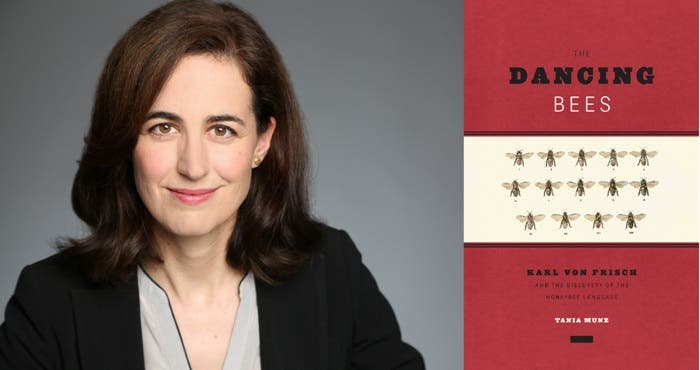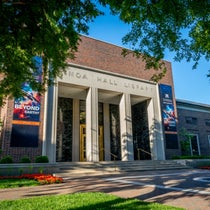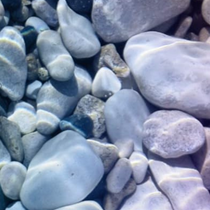Book by Library VP Goes on Sale this Month
Tania Munz, Linda Hall Library’s Vice President for Research and Scholarship, will put her history of science expertise on display when her book, The Dancing Bees: Karl von Frisch and the Discovery of the Honeybee Language, goes on sale later this month. Munz began working on the book about Austrian-born scientist Karl von Frisch as a PhD student at Princeton University. She drew on meticulous archival research and wrote the book for a broad audience interested in science, history, and bees. As we are seeing with current bee populations, bees were dying in 1940s Europe. The dying bees caused a chain reaction contributing to fears of a food shortage during World War II. While trying to solve the mystery of the dying bees, von Frisch discovered that bee dances convey to hive mates the location and distance of food sources and other elements necessary for survival. “Much of what von Frisch discovered about bees still serves as the foundation of what scientists know about bees today,” Munz said. “Karl von Frisch’s story reminds us of how critical the insects are to our own food supply.” Yet the dancing bee discovery almost didn’t happen, because the Nazi government determined that von Frisch, a professor at the University of Munich, was one-quarter Jewish. Only growing concerns about the food shortage by the Nazi Ministry of Food and Agriculture allowed von Frisch’s work to continue. In 1973, von Frisch was awarded a portion of the Nobel Prize for Physiology or Medicine for his work. The Dancing Bees, published by the University of Chicago Press, has earned solid early reviews. One reviewer called the book “a triumph of science writing, a well crafted, deeply researched story of politics, ethics, and the fascinating lives of humans and bees.” The reviewer continues, “Munz weaves a strong cast of characters into a rich and powerful work of history.” Writing The Dancing Bees turns a page on Munz’s career. In January, she left her position as a lecturer at Northwestern University to join the Linda Hall Library. Her new position includes expanding the Library’s Fellowships program, which funds scholars from all over the world to research topics in the history of science and technology. “I was looking for an opportunity that was not on the traditional academic track,” Munz said. “And I am fortunate that I get to use my experiences of researching and writing a book, and my training in the History of Science, to advise other young scholars on their research projects in my new role at the Linda Hall Library.”






